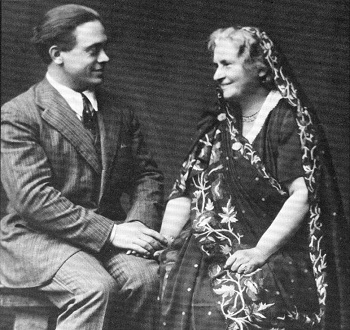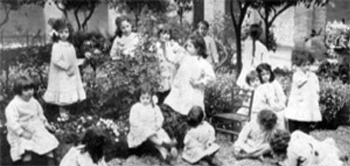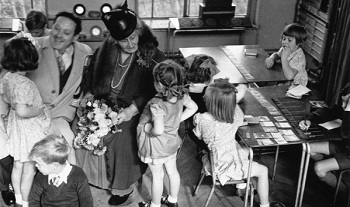Maria Montessori's Biography

Maria Montessori is one of the 20th century's most influential figure in an educational reform movement for children from birth to adulthood. Her life's work is devoted to the cause of the child, for she believed the child is the answer to a peaceful future and a renewal of humanity.
Born in Italy in 1870, Maria Montessori was a woman far ahead of her time. In the society where the two career choices for women were a housewife and a school teacher, Maria defied the norm, and dreamt of becoming an engineer and a physician. She became the first female physician to graduate and practice in Italy. Her experience and success in educating challenged children who rose up to the mark of normal children in academic made her seek for the true ability of ordinary children.
In 1906, an opportunity arose for Dr. Montessori to start the first "Children House" with young children from the families in the poorest sector of Rome. The transformation of the children within short time drew many visitors worldwide to see the 'miracle' children. Her method of education derived from scientific observation of children, who were left free in a prepared environment . The revelation of the children made Montessori give up her medical career, so that she could immerse in working with children and developing her education method that truly fit the nature of learning. Clearly described by Montessori herself,...

"What was the wonder due to? No one could state it clearly.
But it conquered me for ever, because it penetrated my heart as a new light.
I changed my whole life. I was nearly 40.
I had in front of me a doctors' career and a professorship at the University.
But I left all, because I felt compelled to follow [these children],
and to find others who could follow them,
for I saw that in them lay the secret of the soul."

The rest of her life, she worked tirelessly developing education method for children from birth to maturity. In 1939, she opened the Montessori Training Center in the Netherlands and founded a series of teacher training courses in India. She believed that only through an education could peace be established in the world. She was nominated for the Nobel Peace Prize three times in 1940, 1950, and 1952.
Montessori talked about an attempt to understand and educate a child who is tied to a desk at school, was like a futile effort in studying a pinned butterfly, trying to understand the nature of it. At the end of her life, she was convinced that she had done her part of setting free the butterflies, or the children of her time, and of the future. She died in Holland in 1952. Her work lives on through the Association Montessori Internationale (AMI), the organization she founded in the Netherlands.
